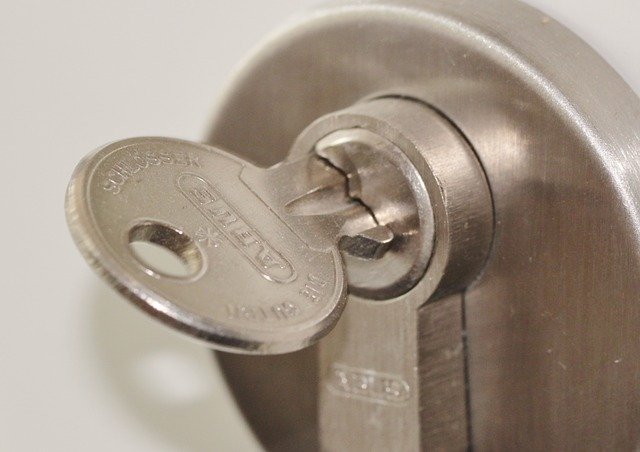When it comes to home security, we all have preconceived notions as to what we should do and shouldn’t bother doing to make our home less desirable to potential thieves. But are all of our assumptions correct? Let’s take a closer look at six home security myths that aren’t true.
Break Ins Occur Mostly At Night
Statistics show that in fact break-ins are 6% more likely to occur during the day when homes are frequently empty because people are at work, at school or when people duck out for errands. While darkness provides thieves with some benefits, many people are home in the evening making it less likely that their home will be broken into at that time.
more likely to occur during the day when homes are frequently empty because people are at work, at school or when people duck out for errands. While darkness provides thieves with some benefits, many people are home in the evening making it less likely that their home will be broken into at that time.
Break-Ins Don’t Occur When People Are Home
While only about 28% of break-ins occur when someone is home, that’s still better than 1/4 burglaries occurring with at least one person inside the house. This increases the chance of an altercation with the person(s) inside the home which can lead to injury or worse. Statistics also show that while only about 7% of such break-ins result in someone being injured, that’s no consolation to those who experienced an injury on top of a break-in.
of break-ins occur when someone is home, that’s still better than 1/4 burglaries occurring with at least one person inside the house. This increases the chance of an altercation with the person(s) inside the home which can lead to injury or worse. Statistics also show that while only about 7% of such break-ins result in someone being injured, that’s no consolation to those who experienced an injury on top of a break-in.
COVID-19 Has Decreased Crime
This is partially true. While statistics show that home breaks-ins have gone down in 2020 most likely due to people spending more time at home, business break-ins and thefts have increased.
And just because people are at home, don’t think that some home thefts haven’t gone up. Research appears to suggest that porch piracy – package theft from outside homes – has dramatically increased in 2020. Although these specific theft statistics are not currently compiled, online searches for package theft and related search queries have significantly increased over 2019 figures.
So even though people are home more often these days, theft from outside people’s homes appears to have gone up.
Break-Ins Are Not Seasonal
In other words, some people may be unaware that in fact some seasons result in higher levels of theft and break-ins than others. Summer is the worst season for break-ins, followed by autumn, spring and winter. So winter is the period where you are least likely to experience a break-in, 11% less likely than in summer.
less likely than in summer.
And the single month where the least amount of break-ins tend to occur is in the middle of winter in February. While summer months are when people tend to be away from the home more frequently either around town, at the beach or on vacation, it’s possible that winter months are simply not as desirable to thieves especially if you live in an area where winters are harsh.
Home Alarms Are Not A Good Deterrent
Homes without a security system are 300% more likely to be burglarized.
Alarms.org
Research shows that not only do alarms deter break-ins but that thieves admit that they are less likely to attempt to break in to a house when they notice a security system is in place ie. there is signage or stickers indicating its existence.
Alarms.org reports that only 17% of homes have an active security system in place. Thieves tend to look for low hanging fruit and a secure home with a visible security system doesn’t fit that description.
Most Break-Ins Are Committed By Pros
A study by the University of North Carolina Charlotte interviewed 422 felons who had been convicted of theft. The results showed that most break-ins are committed by amateurs and that their main motivation for committing thefts was acquiring drugs (51%) or money (37%). Conversely only 1% of the 422 male and female respondents suggested that stealing guns was a motivation which goes against common belief that firearm theft is a main driver for many thieves.
by the University of North Carolina Charlotte interviewed 422 felons who had been convicted of theft. The results showed that most break-ins are committed by amateurs and that their main motivation for committing thefts was acquiring drugs (51%) or money (37%). Conversely only 1% of the 422 male and female respondents suggested that stealing guns was a motivation which goes against common belief that firearm theft is a main driver for many thieves.
Summary
What this means to home owners is that more often than not the person(s) casing your house to break-in is an amateur looking for an easy mark. They will most likely be dissuaded from attempting to rob your house if you’ve made it too difficult to be worth the bother.
You can’t prevent all robberies but you might at least be able to lower the chance that you get robbed. Although no one wants to look at it this way, it reminds me of an old joke:
Two people were being chased by a lion and when one guy says “how are we going to outrun a lion?” the other guy says “I don’t need to outrun the lion. I only need to outrun you.” Make sure your home isn’t the first guy.


